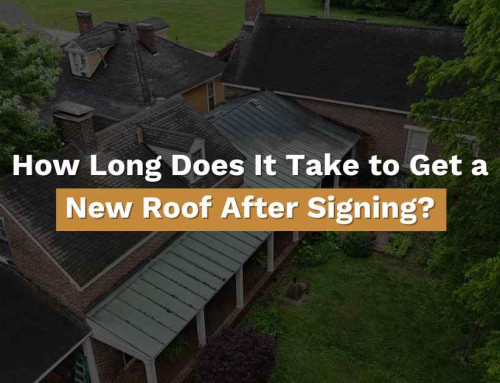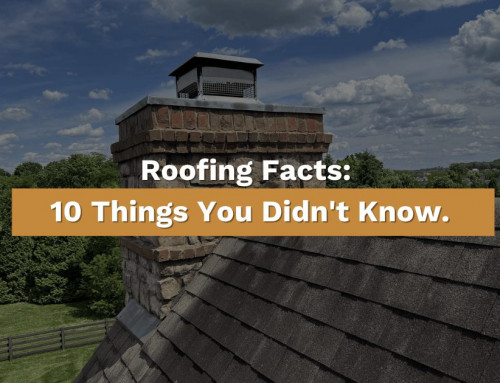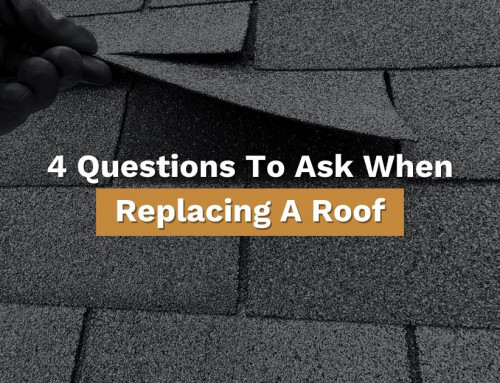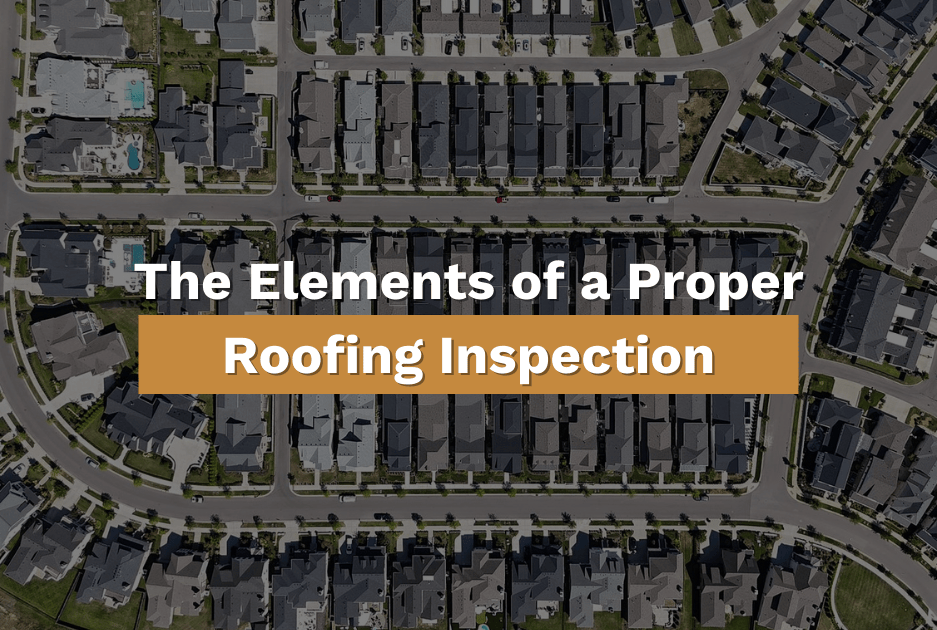
Highlights for Proper Roofing Inspection
Regular roof inspections help catch missing shingles, roof leaks, and water damage before they become costly repairs. A professional roofing contractor will check your entire roof, including roofing materials, flashing, gutters, and vent pipes, to ensure it remains in top shape. Inspections are essential after severe weather, before buying or selling a home, or as part of regular maintenance. Catching issues early extends your roof’s lifespan and can support insurance claims if needed.
Table of Contents
Why Proper Roof Inspections Matter
When scheduling a proper roof inspection, consider an annual inspection as a proactive measure to identify potential issues before they worsen. Here are some things we typically look for to help protect your roof from irreversible damage.
Roof inspections are essential for maintaining the integrity of your roof. A basic roof inspection is often part of the services provided by roofing contractors when they give estimates for repairs or replacements. This ensures that any damage is accurately assessed and addressed promptly.
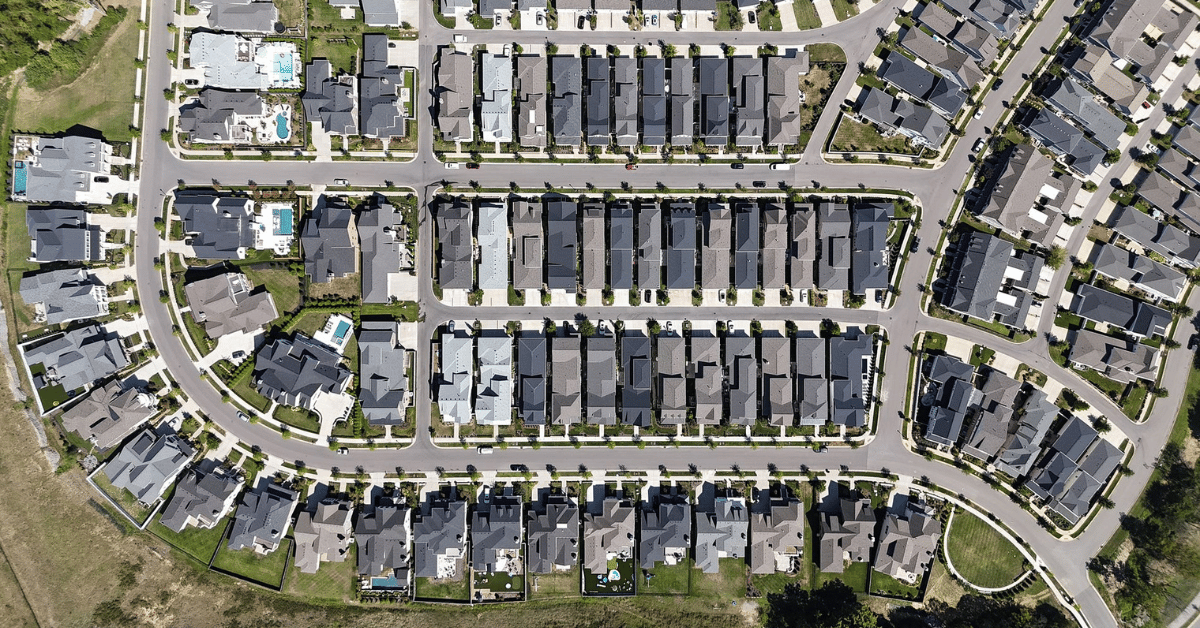
What is a Roof Inspection?
A roof inspection is a comprehensive evaluation of your home’s roof, typically conducted by a professional roofing company. This thorough examination covers the entire roof, including the roofing materials, structural elements, and related components. The primary goal of a roof inspection is to identify any potential issues, damage, or signs of wear and tear that could lead to roof leaks, water damage, or other significant problems. By assessing the condition of your roof, a professional roofing contractor can provide you with a detailed understanding of its current state and any necessary repairs or maintenance. While some homeowners may consider conducting their own roof inspection, it is essential to note that without professional experience, critical signs of damage may be overlooked.
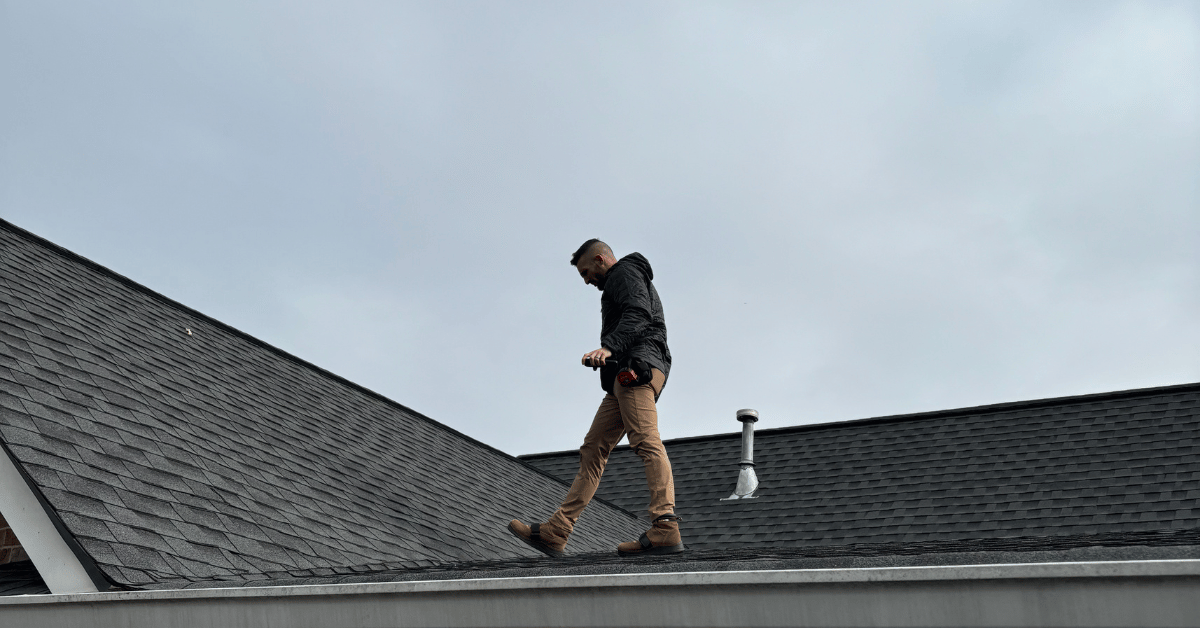
Why is a Roof Inspection Necessary?
Regular roof inspections are crucial for maintaining the integrity and longevity of your home’s roof. Regular roof inspections are crucial for maintaining the integrity and longevity of your home’s roof, and can help identify issues that require roof repair before they escalate. By identifying potential issues early, such as missing shingles or damaged flashing, you can prevent minor problems from escalating into major, costly repairs. A roof inspection can also detect early signs of roof leaks and water damage, allowing you to address these issues before they compromise the structural integrity of your home. Additionally, a professional roofing company can offer valuable recommendations for ongoing maintenance, helping to extend the life of your roof and protect your investment.
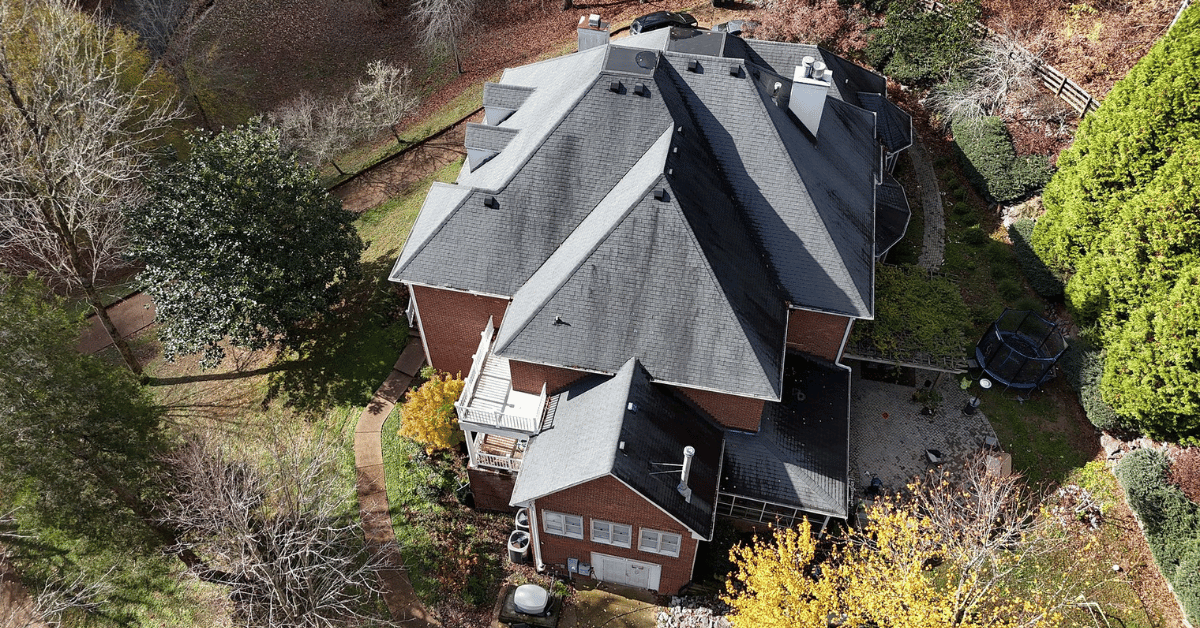
Who Performs Roof Inspections?
Various professionals can perform roof inspections, each bringing their own expertise to the table:
-
Professional Roof Inspectors: These specialists focus solely on inspecting roofs and identifying potential issues. They may work independently or as part of a roofing company and offer a detailed and thorough evaluation of your roof’s condition.
-
Roofing Contractors: Many roofing contractors include inspection services as part of their offerings. With their extensive knowledge of roofing materials and repair techniques, they can accurately diagnose problems and recommend appropriate solutions.
-
Home Inspectors: While home inspectors may not have the same expertise as professional roof inspectors or roofing professionals, they can still spot potential issues during a general home inspection. However, for a comprehensive roof inspection, it’s best to rely on specialists.
When choosing a roof inspection professional, consider their qualifications, experience, and reputation. Look for certifications from reputable organizations such as the National Roofing Contractors Association (NRCA) or the International Association of Certified Home Inspectors (InterNACHI). These credentials ensure that the inspector has the necessary training and expertise to assess your roof accurately.
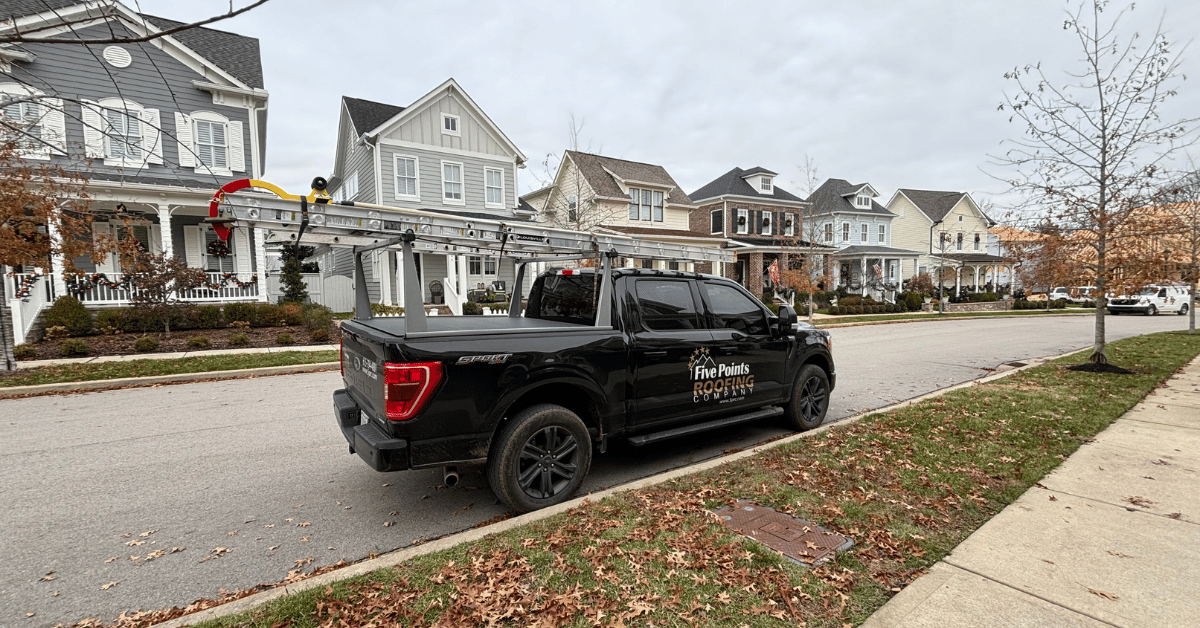
When to Get a Roof Inspection
There are several key times when scheduling a roof inspection is essential:
-
Before Buying or Selling a Home: A roof inspection can uncover potential issues that might affect the sale or purchase of a property. Knowing the roof’s condition can help negotiate repairs or adjust the sale price accordingly.
-
After Severe Weather: Heavy rain, hail, or high winds can cause significant damage to your roof. After such events, it’s wise to get a roof inspection to ensure no hidden problems could lead to leaks or structural damage.
-
If You Notice Signs of Roof Damage: Missing shingles, curled or buckled shingles, and wear around chimneys, vents, or skylights are all indicators that a roof inspection is needed. Addressing these issues early can prevent more extensive damage.
-
As Part of Regular Maintenance: Annual or bi-annual roof inspections are a proactive way to identify potential problems before they become significant. Regular inspections help maintain the roof’s integrity and extend its lifespan.
By scheduling roof inspections at these critical times, you can protect your home from costly repairs and ensure your roof remains in good condition.
What Happens During a Roof Inspection?
A roof inspection is a close look at your entire roof to check for any issues. A professional roofer will examine:
-
Roof materials (like asphalt shingles, tiles, and metal panels)
-
Structural parts (such as underlayment, flashing, and decking)
-
Drainage systems
-
Seals around vent pipes, chimneys, and skylights
The goal is to find problems like missing shingles, damaged flashing, or roof leaks before they become bigger, more expensive repairs.
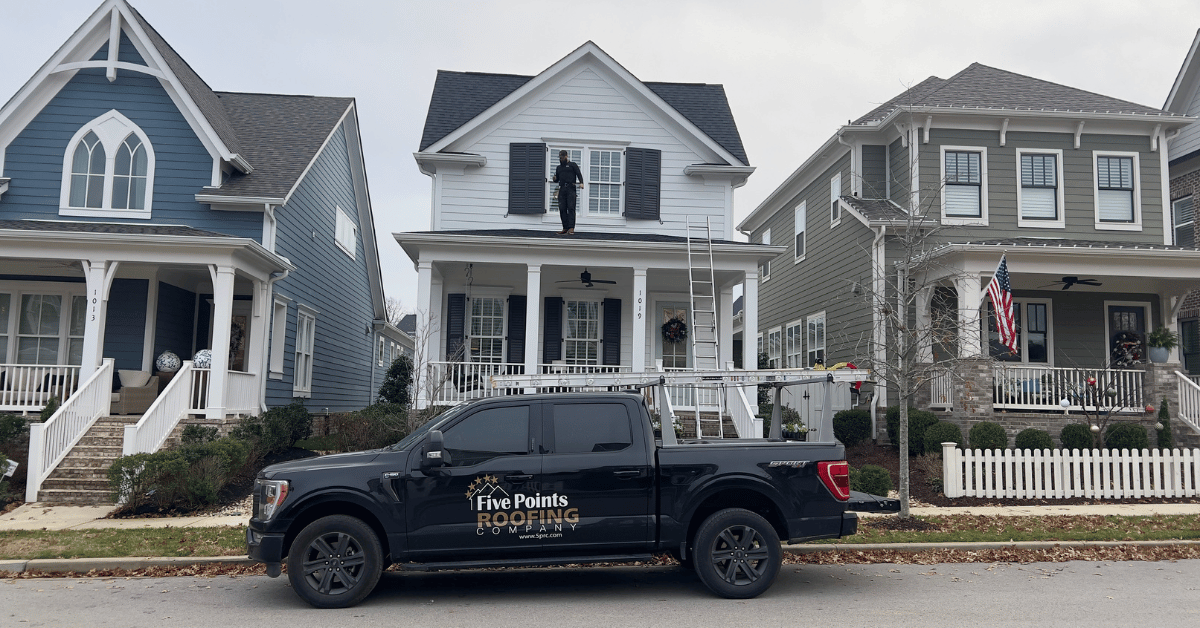
Missing or damaged roof materials
The shingles, roof tiles, fasteners, and downspout systems protect your home from the elements. Identifying a missing shingle is significant, as it can be a sign of potential severe damage to the roof. If any of them are damaged or missing, the roof and the structural elements below (underlayment, framing materials, vapor barriers, insulation, etc.) are vulnerable. We’ll notice sealing or structural issues with skylights or roof windows that may not be evident from the interior.
Your roof inspector will list and report any yellow and red flags. The inspector will also provide suggestions and an estimate for repair costs so you can decide how to proceed.
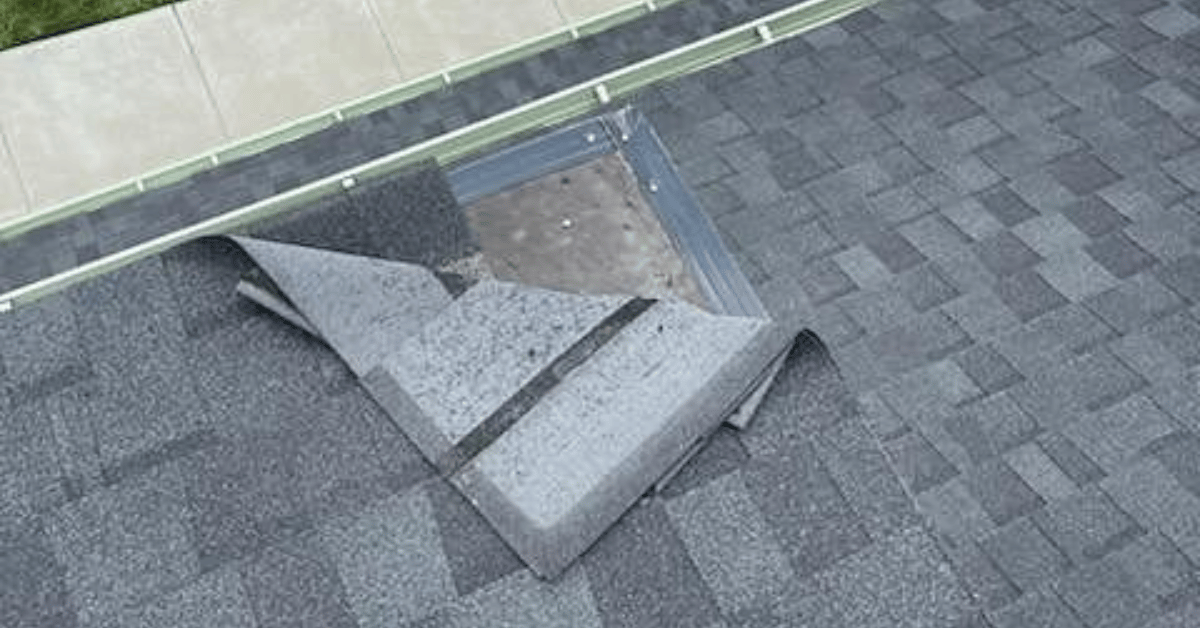
Evidence of algae or moss affecting roof maintenance
It may look pretty, or seem cottage- or green roof-like I appearance, but any evidence of algae or moss on a roof is bad news. Once those colonies take hold, they’re breaking down the structural components of your roof material(s). They can also wick moisture through to the interior of your home.
Cutting back trees can help, but once algae and moss are established, the roof requires a thorough cleaning. This is a potential DIY task and part of routine maintenance, but you must take precautions to secure yourself to prevent falling or injury.
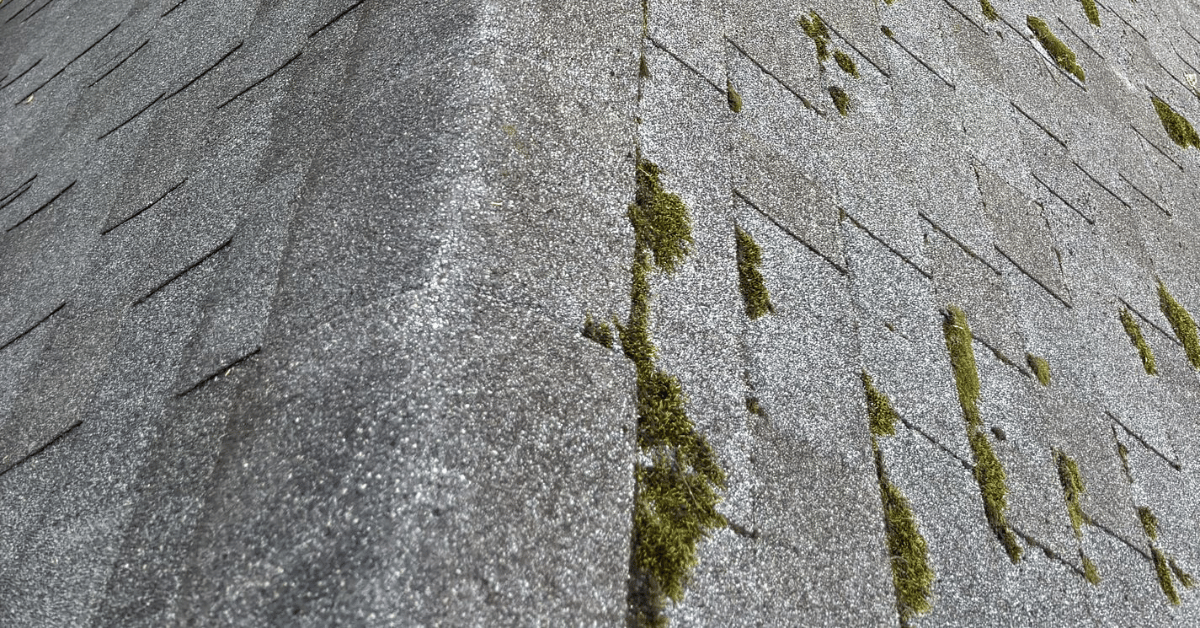
Evidence of ponding or pooling water indicating roof leaks
Flat roofs have trended occasionally and are prevalent in commercial applications – partially because they’re cheaper to build. However, roof slopes are more about functional design than aesthetics. Your sloped roof ensures water can’t pool or collect, putting your home at risk for leaks.
If we see ponding or pooling water, we’ll investigate the source and suggest repairs, such as clearing clogged drainage lines, redesigning gutters and downspouts, or re-pitching the roof.
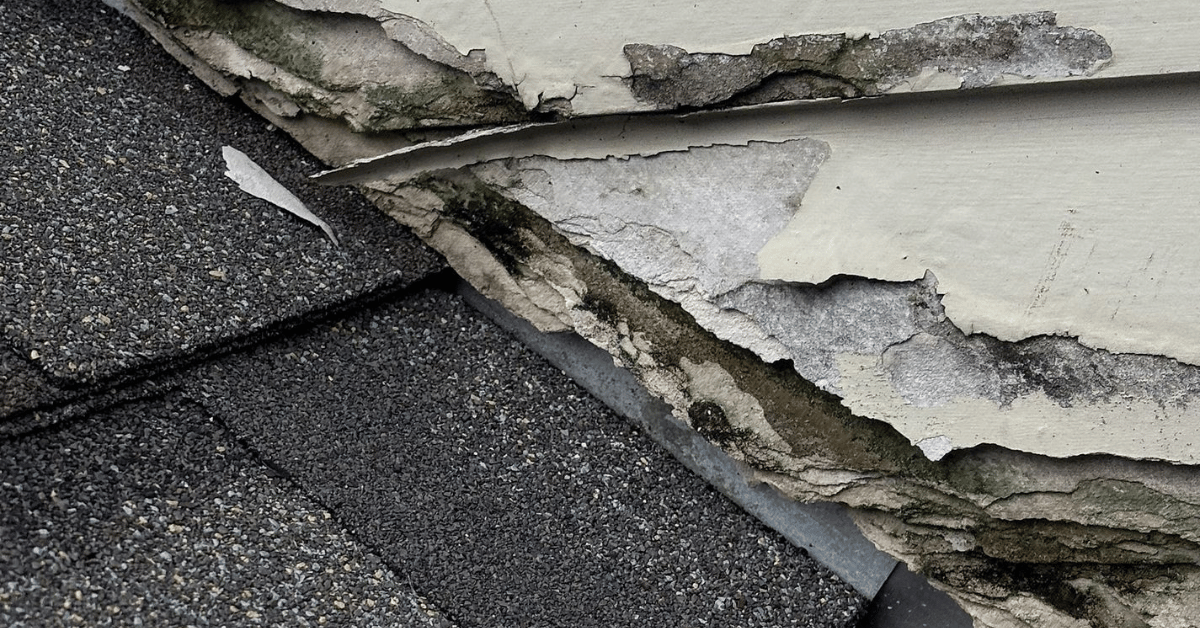
Cracked, rusted, or loose vent pipes
Roofing systems are made from multiple components, and an issue with any of them compromises the hole. After a storm, it is crucial to safely remove roof debris, including large tree limbs, to prevent further damage. While we’re up on the roof, we’ll look for evidence of cracking, rusted, loose or missing components, including:
-
Caulking and sealing
-
Flashing
-
Chimney caps, mortar or bricks/stones
-
Gutters
-
Rubber boots around pipes or other projections
We’ll also examine all the awkward locations that are difficult to access on your own, such as the eaves, overhangs, and undersides of gutters.
Proving that your roof has been maintained according to the manufacturer’s instructions will expedite homeowner’s insurance claims and address any warranty items that need to be addressed over the roof’s lifetime. We’re experts in dealing with insurance companies, so rest assured: If your roof has been damaged, we’ll walk you through every part of adequately filing a claim and getting your roof replaced.
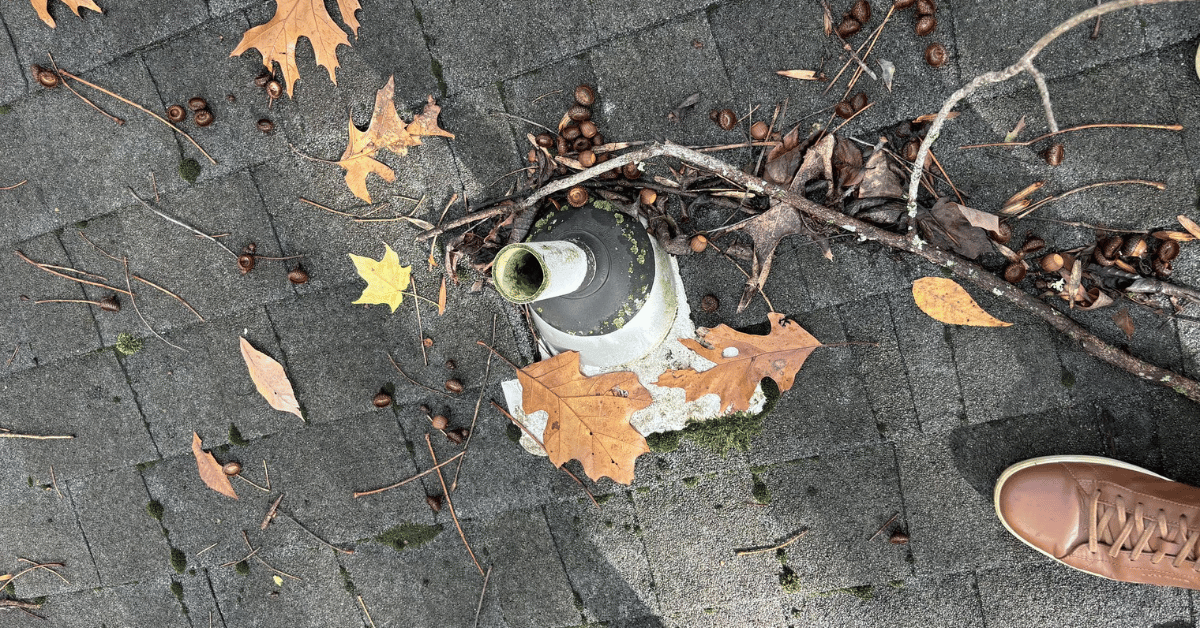
How Are Roofing Inspections Performed?
Roofing inspections are typically carried out by a professional roofing contractor who will thoroughly evaluate the whole roof. This process often begins with a visual examination from the ground, followed by a closer inspection from the roof. The inspector will look for signs of damage, wear and tear, and potential issues such as lost shingles, damaged flashing, and clogged gutters. Specialized equipment like drones or thermal imaging cameras may be used to identify hidden problems. By assessing the condition of the materials and related components, the inspector can provide a comprehensive overview of the roof’s health.
How Much Does a Roof Inspection Cost?
The cost of a roof inspection can vary based on several factors:
-
Location: Inspections in urban areas may be more expensive than those in rural areas due to higher living costs and demand for services.
-
Size of the Roof: Larger roofs require more time and effort to inspect, which can increase the cost.
-
Type of Roof: Different materials, such as tile or metal, may require specialized equipment or expertise, affecting the inspection price.
-
Experience of the Inspector: More experienced inspectors may charge higher rates due to their expertise and thoroughness.
On average, a roof inspection costs $75 to $675. However, some roofing contractors offer free inspections as part of their services, especially if they hope to secure a repair or replacement job. To avoid surprises, it’s always a good idea to ask about potential costs upfront.
Roof Inspection Before a Real Estate Transaction
A roof inspection is a crucial step before buying or selling a home. It can help identify potential issues that could impact the transaction and provide valuable insights for both buyers and sellers:
-
Identify Needed Repairs or Replacements: A roof inspection can reveal any necessary repairs or replacements, allowing these costs to be factored into the sale or purchase price. This transparency helps avoid disputes and ensures a fair deal for both parties.
-
Provide Peace of Mind: Knowing the roof is in good condition can give buyers and sellers peace of mind. Buyers can proceed with confidence, while sellers can assure potential buyers of the home’s quality.
-
Prevent Costly Surprises: A roof inspection can prevent unexpected expenses, such as discovering a leaking roof after the sale. Addressing issues upfront can save time, money, and stress.
It’s essential to hire a reputable roofing contractor or professional roof inspector to perform the inspection. They can provide a detailed report outlining any issues and recommended repairs or replacements, ensuring a smooth and informed real estate transaction.
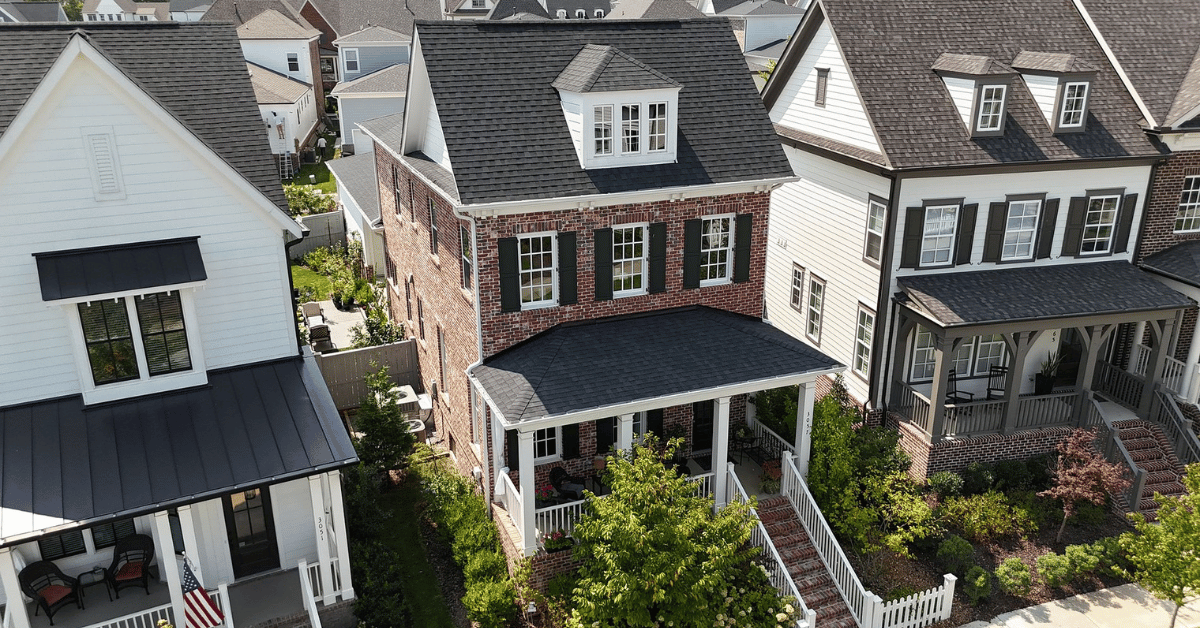
The Importance of Regular Roof Maintenance
Regular maintenance is vital for extending the life of your roof and preventing costly repairs. A well-maintained roof offers several benefits:
-
Prevent Roof Leaks: Regular maintenance helps identify and address potential issues before they become major problems, such as roof leaks that can cause significant water damage.
-
Reduce Energy Costs: A well-maintained roof ensures your home is well-insulated and energy-efficient, helping to reduce heating and cooling costs.
-
Increase Property Value: A well-maintained roof enhances your property’s value, making it more attractive to potential buyers.
-
Extend Roof Lifespan: Regular maintenance can extend the lifespan of your roof, delaying the need for costly replacements.
Regular maintenance should include:
-
Inspecting the roof for damaged shingles, gutters, and downspouts.
-
Cleaning debris from the roof and gutter system to ensure proper drainage.
-
Inspecting pipes and chimneys for damage or blockages.
-
Checking for signs of wear around skylights and other roof features.
Regular roof maintenance can help ensure your roof remains in good condition, preventing costly repairs and extending its lifespan. This proactive approach to roof care protects your investment and keeps your home safe and secure.
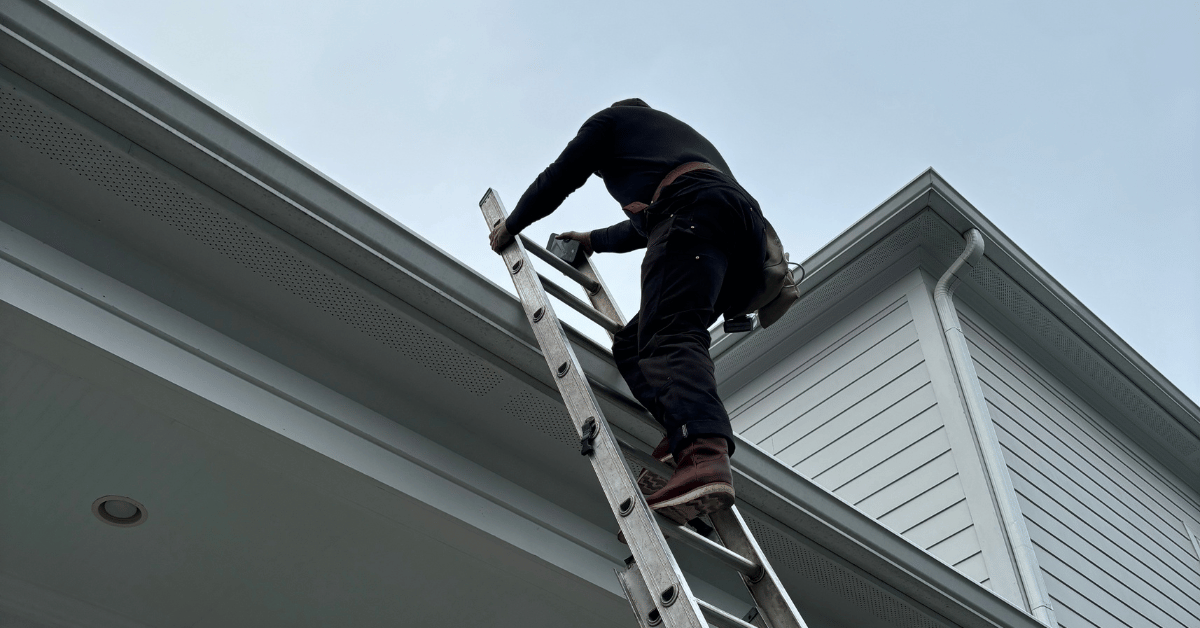
How a Roof Inspection Helps with Insurance Claims
A roof inspection can be key to filing a claim if extreme weather or natural disasters damage your roof. At Five Points Roofing, we work directly with insurance companies to ensure you have proper documentation of your roof’s condition. We assist with adjuster inspections to verify damage. You get a fair estimate for necessary repairs or replacement
Our team makes the process easier so you can focus on your home, not the paperwork.
Next Steps After a Roof Inspection
Once the roof inspection is complete, the inspector will provide a detailed report outlining any issues or concerns identified during the evaluation. This report will include recommendations for repairs, maintenance, or even roof replacement if necessary. If repairs are needed, a reputable roofing contractor can offer a quote for the roof repair and schedule the necessary work. If the roof is in good condition, the inspector may suggest regular maintenance to keep it in optimal shape. Using the inspection report, homeowners can plan and budget for any required work, ensuring their home’s roof’s long-term integrity and durability.


